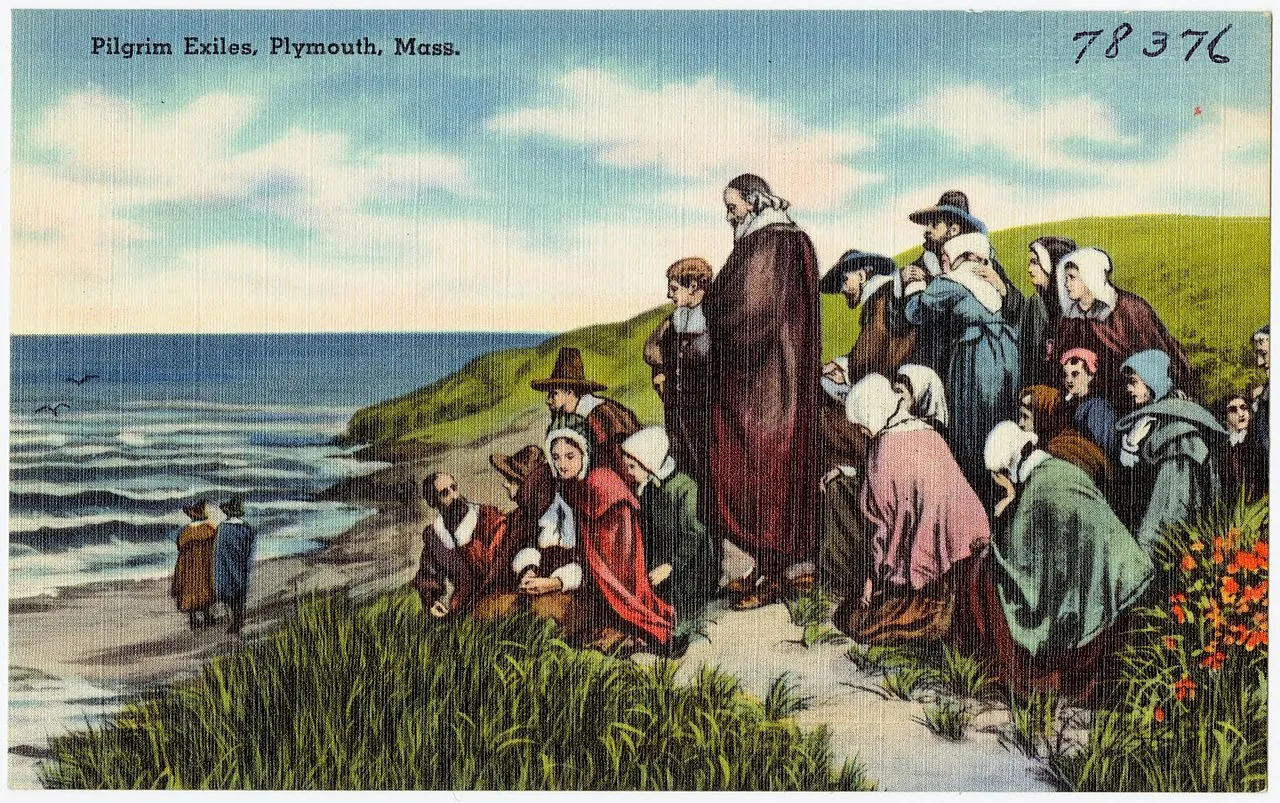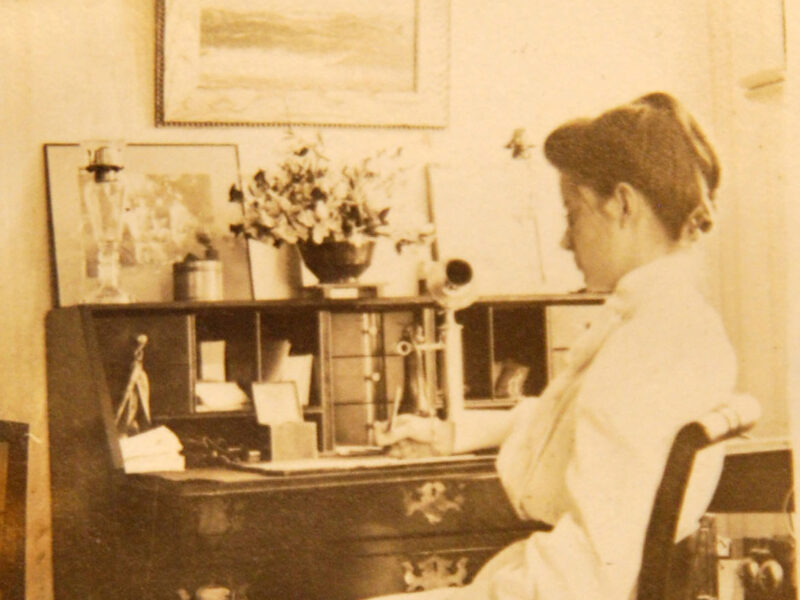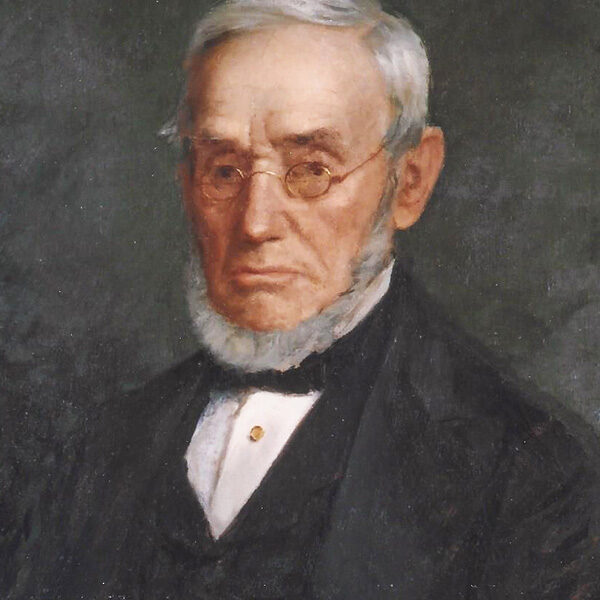Dear Grandpa Francis and Cousin Philip:
I am writing to you to introduce the legacies you have left in the close to 400 years since you arrived separately on the shores of North America—you, Grandpa, traveling with your oldest son, arriving on the Mayflower, and you, Cousin, traveling with your mother on the Fortune and arriving in the fall of 1621. Grandpa, you and your oldest son, Jacob, are my 9th and 8th great grandfathers. Your wife, sister to Philip’s mother, arrived on the Anne in 1623 with the remainder of your children. Philip, these connections make you my first cousin 9 times removed. I will use this letter to 1) briefly explore the background of Huguenots, as representatives of one group leaving its homeland for religious persecution, 2) discuss the legacies you and other Huguenots left in what would become the United States of America in the late 18th century, and 3) to present your immediate and extended families and their descendants.
When I began studying my ancestors in earnest, the first task I undertook was to determine and then certify the family’s Mayflower ancestors. Since we have eight that took some time, and the first family I studied in detail was of Constance Hopkins who arrived with her father, Stephen, on the Mayflower and subsequently married Nicholas Snow who arrived on the Anne, coincidentally traveling along with Francis’ wife and their other children. The Snow connection took me to meet my mother’s cousin in 2010 and, as the then current family archivist, she shared much with me including an 1860s carte de visite album, compiled by my 2nd great grandmother, Abby Taber Hunt. The album afforded me a wonderful opportunity to not only study and present the people whose photographs were in the album but their neighbors as well as the depth and richness of 19th century New Bedford, Massachusetts, a city barely 30 miles from Plymouth where both the Mayflower and the Fortune arrived. Those stories are found in [1]. Subsequently, I studied a small sketchbook that my great aunt, granddaughter of Abby, compiled when she and friends toured Europe for three months in 1912 [2]. Now, with these letters, I am undertaking to research and tell more stories about ancestors who arrived in North America in the 17th century, as well as the lives and stories of their descendants.
Brief Background of Settlements/Migrations to North America
Before migrations to North America for religious reasons, there were attempts at establishing settlements in North America, notably Roanoke and Jamestown. These settlements were meant to be permanent, and their settlement’s stated purpose was commercial. In 1584, Raleigh sought the Queen’s permission to establish a colony in North America and was given exclusive rights to possess and exploit the resources of the whole continent, excluding any parts inhabited by Christians. Further discussion of the Roanoke Colonies can be seen in [3] which also includes additional resources. Roanoke was abandoned in 1586 and a subsequent attempt to establish a settlement on the Chesapeake Bay called the City of Raleigh never materialized.
Following this, in 1606, an attempt was made to establish a permanent site named for King James—Jamestown [3]. Jamestown faltered and a rescue ship, the Sea Venture, with provisions and support was sent from London. There are harrowing stories of the shipwreck on Bermuda when a typhoon (hurricane) destroyed the Sea Venture. [mention London Times & Shakespeare] Bermuda was flush with food (wild boar and fruits) and once the storm passed the crew survived with the food and temperate climate. The story of the near mutiny is recounted in the books cited in [4] at the end of this brief passage including the sentencing of Stephen Hopkins, my 9th great grandfather, to death. Ultimately, this sentence was rescinded. The crew of the Sea Venture built a replacement ship and went to Jamestown. Subsequently, Hopkins returned to London to find his first wife had died. An adventurer, not a religious dissenter, he and his second wife and children, joined the Mayflower. And, as the title of the last cited work in [4] suggests, he ultimately saved Plymouth.
With the passengers on the Mayflower and the subsequent ships bringing many people to North America in what would later be called The Great Migration, the primary driving factor could be said to have started with the Reformation in the 16th century.
Historians usually date the start of the Protestant Reformation to the 1517 publication of Martin Luther’s “95 Theses.” … The key ideas of the Reformation—a call to purify the church and a belief that the Bible, not tradition, should be the sole source of spiritual authority—were not themselves novel. However, Luther and the other reformers became the first to skillfully use the power of the printing press to give their ideas a wide audience. [5]
In addition to the English, who sought to purify the church, hence the name of Puritan, in France the Huguenots followed Jean Calvin in what became known as Calvinism. The Huguenots fled France and were allowed the first French Protestant church to be set up in England with a charter of Edward V (1547-53). And this is where you, Grandfather Francis Cooke—whose Huguenot name was Franchoijs Couck—worshiped before heading to Leiden where you and your wife, Hester Mayhew, were married. Her sister, Marie Mahieu, was the mother of your nephew and my cousin Philip de Lanoy. You, Cousin Philip, sometime after arriving in Plymouth, changed your name to Delano. Clearly, the reasons, Grandpa and Cousin, your Huguenot family joined the migration to North America were similar to those of the Puritans who were attempting to reform the Anglican Church by purifying it of that they saw as the trappings of Catholicism. See [6] for more on the migrations of the Huguenots from France, including a map of numbers and destinations.
Although the Huguenots settled along almost the entire eastern coast of North America, they showed a preference for what are now the states of Massachusetts, New York, Pennsylvania, Virginia, and South Carolina. Just as France suffered a notable loss through the emigration of these intelligent, capable people, so the American colonies gained. The colonists became farmers, laborers, ministers, soldiers, sailors, and people who engaged in government. The Huguenots supplied the colonies with excellent physicians and expert artisans and craftsmen. For example, Irénée du Pont brought his expertise for making gunpowder learned from the eminent Lavoisier; and Apollo Rivoire, a goldsmith, was the father of Paul Revere, master silversmith and renowned patriot. George Washington, himself, was the grandson of a Huguenot on his mother’s side. The Huguenots adapted themselves readily to the New World. Their descendants increased rapidly and spread quickly. Today, people of Huguenot origin are found in all parts of our country. [7]
See [8] which offers names by occupation of many Huguenot descendants in the United States.
Francis Cooke and Descendants and Legacies
[to come]
Philip Delano and Descendants and Legacies
[to come]
_______________________________
Citations
[1] Frozen in Time, an early carte de visite album from New Bedford, Massachusetts, Second Edition, 2021, Susan Snow Lukesh.
[2] Agatha! Agatha Snow Abroad: A Sketch Book from her 1912 European Tour, 2020, Susan Snow Lukesh.
[3] Seasons of Misery: Catastrophe and Colonial Settlement in Early America, Kathleen Donegan, University of Pennsylvania Press, 2014.
[4] In addition to [3] there are many books that cover Jamestown and Stephen Hopkins’ role. I offer three here.
- Sea Venture, Shipwreck Survival, and the Salvation of Jamestown, Kiernan Doherty, St. Martin’s Griffin, 2007.
- The Shipwreck that Saved Jamestown, The Sea Venture Castaways and the Fate of America, Lorri Glover and Daniel Blake Smith,Henry Holt and Company, 2008.
- A Stranger Among Saints, Stephen Hopkins, The Man who Survived Jamestown and Saved Plymouth, Jonathan Mack, 2020, Chicago Review Press Incorporated.
[5] The Reformation, https://www.history.com/topics/reformation/reformation. Accessed 9/18/2022.
[6] https://www.huguenotsociety.org.uk/history.html Accessed 9/18/2022.
[7] https://www.huguenotsocietyofamerica.org/history/huguenot-history/ Accessed 9/18/2022.
[8] https://en.wikipedia.org/wiki/List_of_Huguenots offers names of many Huguenots in the United States by occupation. Accessed 9/18/2022.



